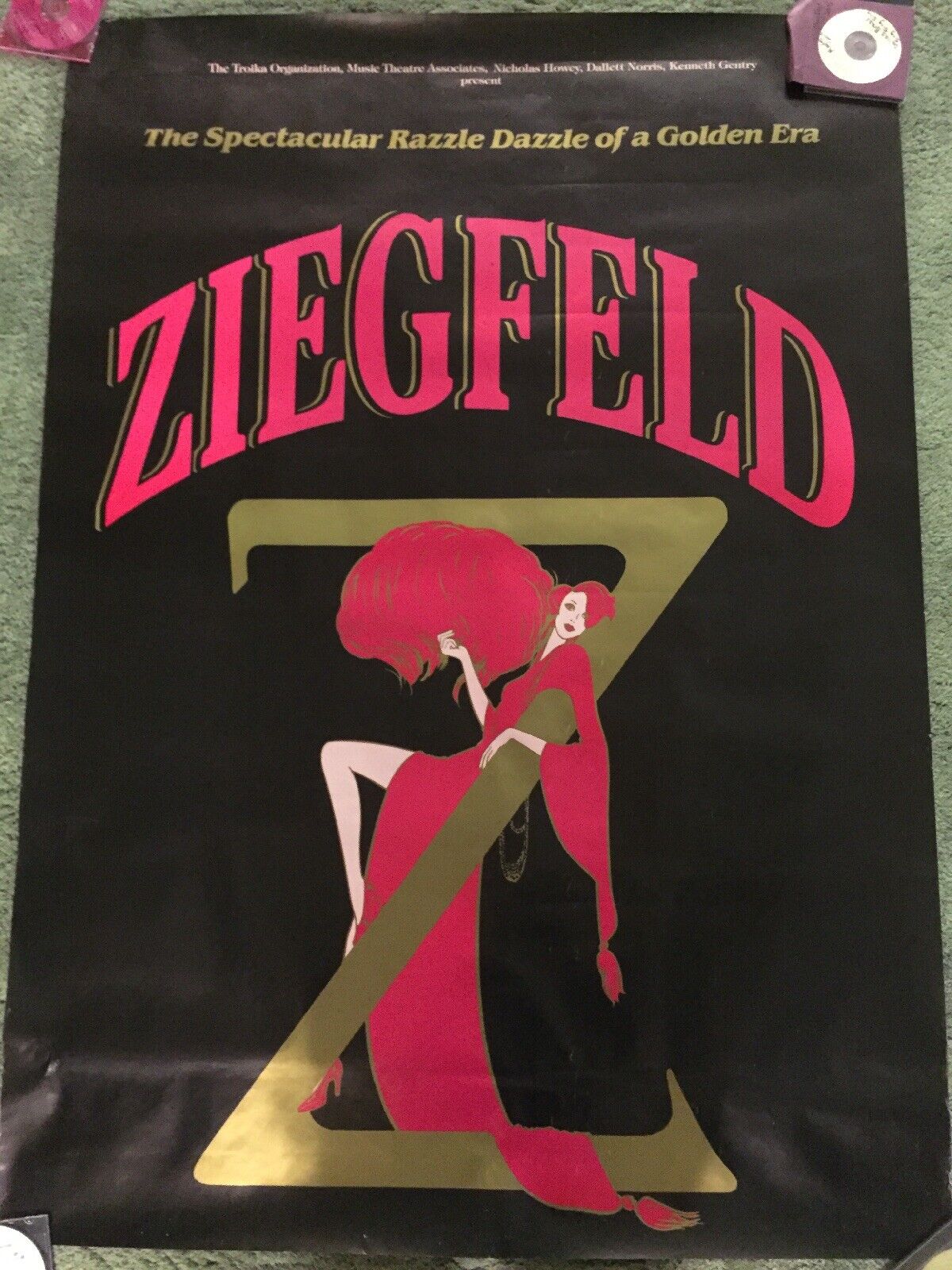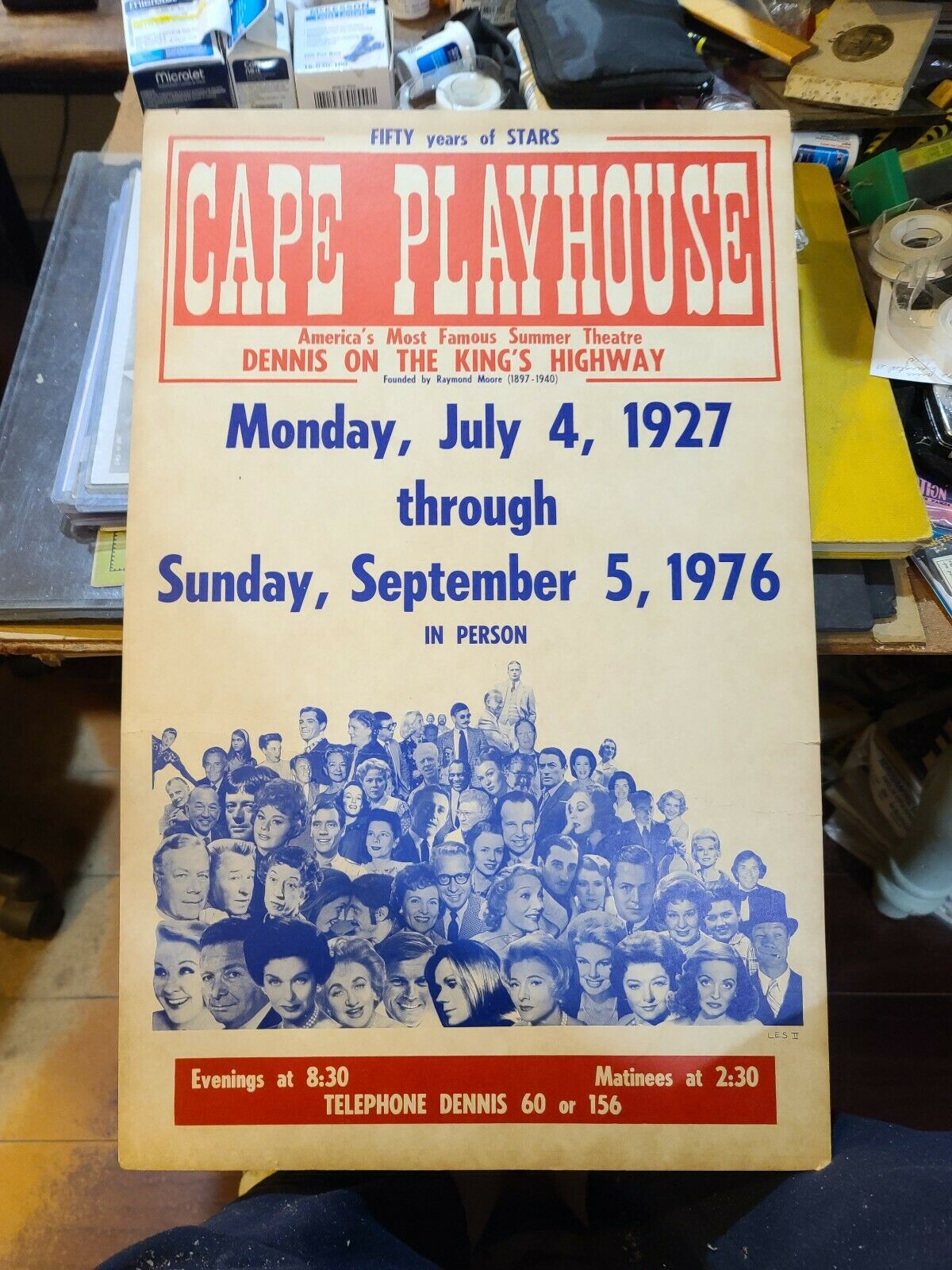-40%
1971 Anything You Say Will Be Twisted K. Campbell Agassiz Theatre Harvard Poster
$ 26.4
- Description
- Size Guide
Description
used, holes and tape residue11 x 17" stiff paper poster that has been rolled for all this time (so it wants to stay that way)
will be mailed rolled
Code JSB169
1971 article from The Harvard Crimson found online
Giggles Anything You Say Will Be Twisted
By Kenneth G. Bartels
May 12, 1971
At Agassiz May 12, 13, 14, 15
PEOPLE in period costumes drift onto the stage. They start playing games, tag and such. A few laughs. Young, happy smiles. Meaningful interaction; instant commune. What, this pseudo-Grotowskian exercise crap, this is HARPO? But wait, that clown drooling into the bucket, the increasingly precise blocking pattern, the scene titles, then the impeccable cockney accents; this is pure Larry Senclick, the master of the rococo basics, Harvard's exponent of technical theatricality, a man who has an amazing talent for layering upon any script a tremendous variety of gimmicks, jokes, and cheap bits, and proceeding to hit them so hard that most of them work.
Anything You Say Will Be Twisted, by British playwright Ken Campbell, is a perfect vehicle for the Senelick style. It is one of a long series of plays and novels, among them Gay's Beggar's Opera, derived from the life of Jack Sheppard, a young thief and ruffian of early 18-century London who became a folk hero through the British love of the scurrilous and inane. This particular version of the Sheppard legend has the hero start out as a relatively innocent carpenter's apprentice and slowly immerse himself in the ways of thievetry, lechery, and general debauchery-only partially against his will. He is extorted by Jonathan Wiold, the Thief-Taker General (Peachum in Gay's play), ends up in Newgate Prison, escapes, is recaptured, hanged, then torn to pieces by souvenir hunters. Campbell's play is episodic, fast-moving, and filled with murky black dialogue. Senelick has expanded upon the episodic format of the text, so that time and the fairly simple plot are frequently interrupted by little extrapolative scenes. This is a hazardous technique, for such material must have an independent value great enough to warrant stopping the action of the play. A ballet parody between a tutu-ed, gum-chewing thief and a pointey-tailed, devil's-horned Jonathan Wild works well. An improvised illustrated lecture on the famous escape of Jack Sheppard from Newgate, given by Jack himself, is brilliant. The gyrating, record-dispensing rock star who sings a "ballad" about Jack is painful, and stands as an excellent example of the limits of such a patchwork approach to comedy.
POPE BROCK as Jack Sheppard is excellent. He is self-assured and at the same time suitably wide-eved and innocent. David Gullette as the Thief-Taker General scowls meanly and reads his lines with precise meter and intonation. Senelick is good at developing expert character actors; Dribbling Wilf ("a criminal mastermind of the first water"), played by E. Mackenzie, has remarkable facial control and an admirable ability to salivate. The Incredible Porty McFigg (Lawrence F. Uhl) cats glass, strangles rats with his teeth, roars and grunts and pounds in his pornography-painted chest, all with considerable glee.
The thing the play hits hardest is crass commercialism and sensationalism. Before being hung, each criminal announces that the really true and honest account of his life is available only from Applebee's, Two entrepreneurs discuss the advertising possibilities of a pair of Sheppard's pants. But this production relies not on satire but rather on slapstick and exaggerated characterization for most of its comic effect, Through gesture, expression, and phrasing, Senelick pushes his stuff up through the curtain call.
Seeing Senclick always leaves one winded, but never exhilarated. Anything You Say Will Be Tuisted is no exception. It is an entertainment experience in and of itself, demanding little prior knowledge and no future reflection. It does nothing more than allow the audience and cast to have fun. Such an approach to theatre is by its very nature limited. Senelick and his cast are intensely aware of these limits, and for the most part stay within them. The production only falters when it attempts to ascend to purposeless artiness or descend into calculated spontaneity.
Making people laugh for the sake of laughing is easy. Sustaining it for an entire evening is a neat trick. Senelick and his cast perform it admirably. Welcome back, HARPO, it's good to see someone around here who doesn't take himself so seriously.












